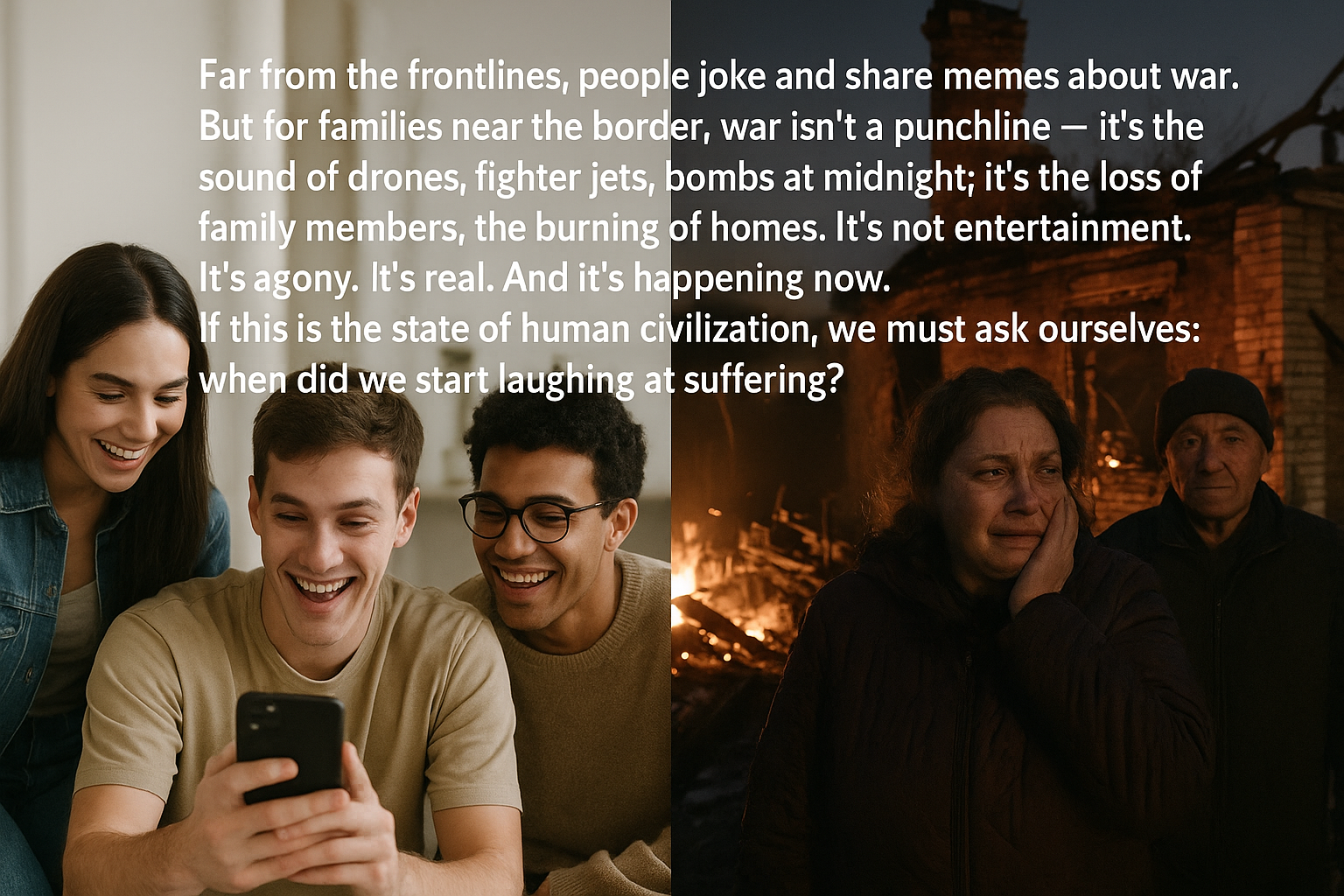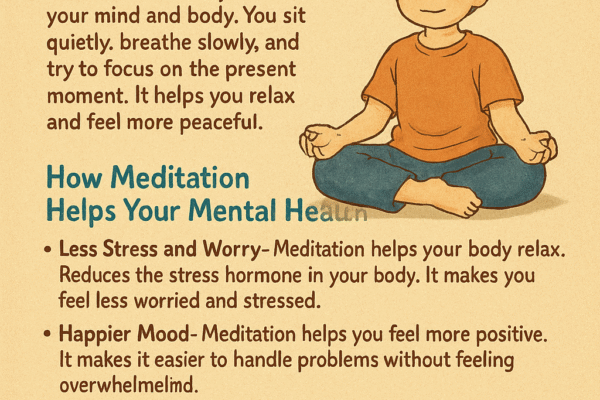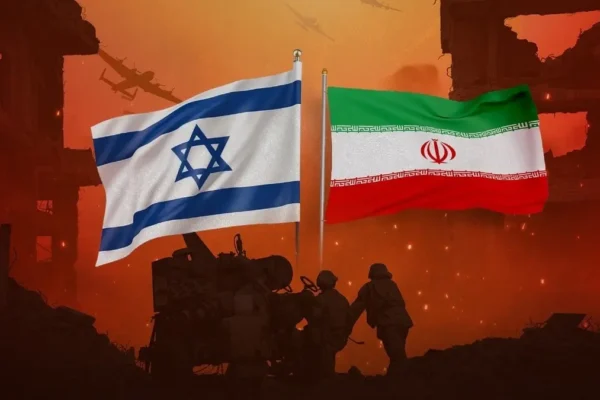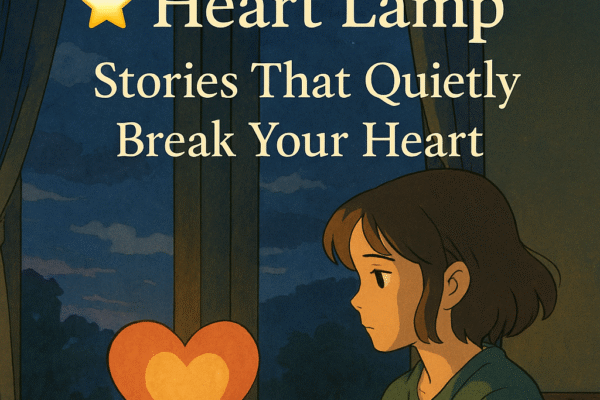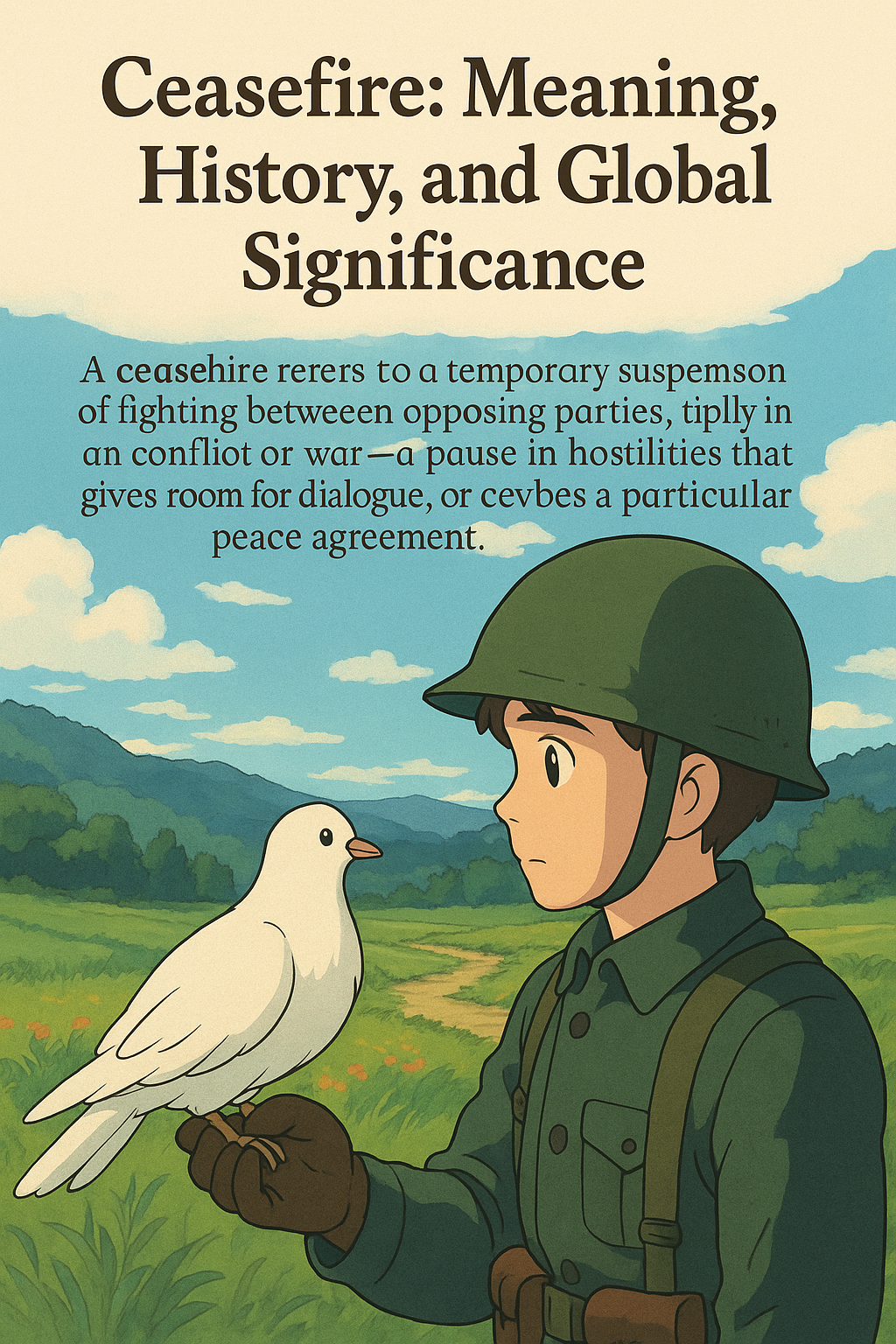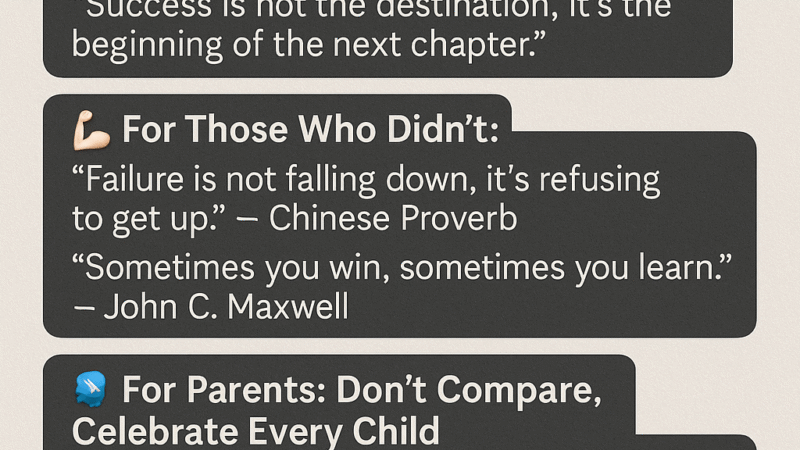Late at night, somewhere near a border, a child jerks awake to the sound of an explosion. A mother pulls her children into her arms as windows shatter. An old man searches for his grandson under rubble. This is war — not on a screen, not in a meme — but in real life.
And yet, thousands of miles away, people scroll past these stories and hit “share” on jokes. They laugh at clever edits of fighter jets. They chuckle at sarcastic one-liners about bombs and borders. They turn someone else’s nightmare into entertainment.
It makes you wonder — when did we start laughing at suffering?
A World of Distance
In peaceful cities, where skies are quiet and streets are calm, war feels far away. The news is just noise. It’s easy to forget that beyond our borders, people live in constant fear. Drones overhead are not metaphors — they are real, humming death. Bombs don’t come with warning sounds or cinematic effects — they destroy without mercy.
In these places, there is no punchline. Only pain.
Imagine, for a moment, if it were your family. Your home. Your nights broken by sirens and your mornings by loss. Would you still laugh?
The Meme Generation
We live in a world of instant reactions. Everything becomes content. A photo, a headline, a 10-second clip — quickly absorbed, quickly forgotten. Jokes and memes help people cope. But somewhere along the way, we stopped asking: “At whose expense?”
War isn’t trending for the people living through it. It’s not something to “like” or “retweet.” It’s a funeral. It’s a mother screaming in a hospital. It’s a father digging graves with his bare hands. When we joke, while they mourn, we lose a piece of our shared humanity.
Privilege in Pixels
To laugh at war is a kind of privilege — the privilege of safety, of distance, of never having to feel what it’s like to lose everything in an instant. That privilege blinds us. It makes someone else’s suffering feel like a story, a spectacle, a moment of amusement.
But suffering is not content. It’s not a trend. It’s not a punchline. It’s real people — people like us — whose lives are being torn apart.
The Voices We Should Be Hearing
Behind every destroyed building is a family who once called it home. Behind every airstrike is a child who won’t go back to school. Behind every loss is a story — of love, of fear, of hope crushed under boots and bombs.
These voices are quiet because war has stolen their breath. But we can choose to listen. We can choose to remember that empathy is stronger than irony.
We can be better.
What We Can Do
We start by remembering: pain deserves respect. We can still use humor, but let it be kind. Let it be aimed at power, not victims. Let it heal, not belittle.
We can educate ourselves. Share stories from people on the ground. Support humanitarian efforts. Talk to each other. Teach our children that other people’s pain is never a joke.
And above all, we must never let our screens shield us from our souls.
In Closing
This is not about censorship. It’s about compassion. It’s about knowing that just because we’re not in the fire doesn’t mean we should roast marshmallows beside it.
War is not a meme. It is a scar — on cities, on families, on hearts. If we truly care about peace, we must first care about people.
Because one day, it might be us looking up at a sky filled with drones — and praying someone, somewhere, doesn’t turn our pain into a punchline.


